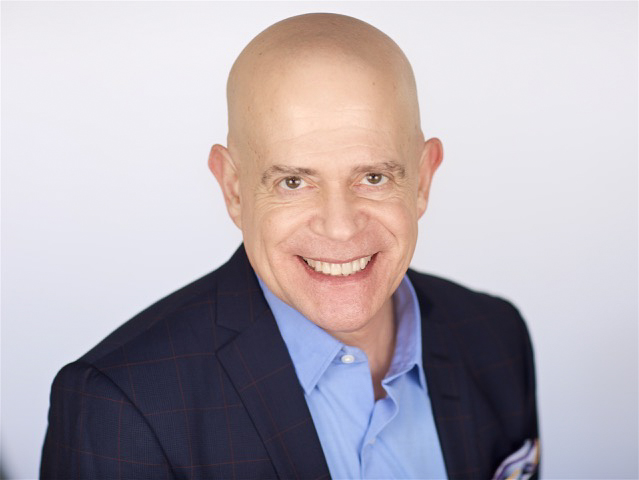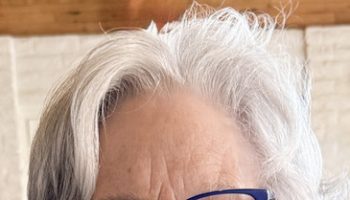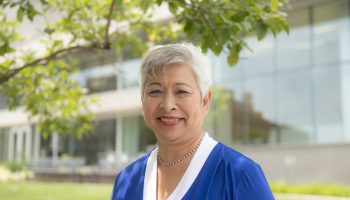
Deborah Trefts
Staff Writer
“Broadway” — one of New York City’s oldest main thoroughfares — is far more than a famous street, and bridge, in Manhattan.
Long before Dutch colonists came ashore on this island in 1614, six years before the Mayflower’s arrival, it was a north-south trail used by the Wickquasgeck, a band of the Wappinger people who lived along the Hudson River’s east bank. With the establishment of the New Amsterdam colony of New Netherland, the trail was widened and became the main road through the southern end of the island.
In time, Wickquasgeck Road was called Gentlemen’s Way or Street, then High Street or “the Highway.” Because of its uncommon width, the British changed its name to Broadway Street after they took over. Fast-forwarding to the present day through reconfigurations, sectional name changes and roadway extensions — not to mention paving — Broadway typically brings to mind the theaters along it rather than the street itself.
For thespians, however, “Broadway” is a theater genre comprised of performances in 41 professional playhouses having at least 500 seats in New York City’s Theater Subdistrict (aka Theater District) and Lincoln Center. Most — but not all of them — are situated in Midtown
Manhattan. Only three of these theaters are actually located on the Broadway thoroughfare, which is often called the “Great White Way” because of its numerous brightly lit-up marquees, billboards and posters.
At 9:15 a.m. Tuesday in the Chautauqua Women’s Club House, Elliot Fishman will give a presentation for the Chautauqua Speaks program, titled “From Concept to Curtain Call: The Making of a Broadway Show.”
A Tony-nominated co-producer and investor group manager, Fishman is also the secretary and treasurer of the Royal Shakespeare Company America, and the general manager of Chickenshed NYC, an inclusive theater company for young people.
“From developing a concept to securing financing, navigating management decisions, the excitement of opening night, the joy of hits and the agony of flops,” he will talk primarily about how Broadway shows get made.
Fishman’s path to Broadway was neither direct nor planned. “Although I was an English major in college and studied Shakespeare, if anyone had said to me, ‘You are going to work for the RSC and co-produce children’s shows,’ I wouldn’t have believed them,” he said.
As a 10 year old, he moved with his family from Asbury Park in Neptune Township, New Jersey, to Columbus, Ohio, which he said is a “fantastic city.” After college at Miami University in Oxford, Ohio, he enrolled in law school at The Ohio State University in Columbus.
“I practiced law for about 14 years in Columbus,” Fishman said. “I worked as counsel for OSU and for the state of Ohio in their office of collective bargaining. I was their chief counsel for labor management issues. I left law practice to go to work in consulting for the Ricochet Group.”
He said that Ricochet focused on management and marketing for organizations involved in the arts and in higher education. RSC was one of its clients, and Fishman was asked to manage it.
“It was a great match,” he said. “I took on the role of secretary/treasurer. I work directly with the team over at Stratford-upon-Avon on fundraising, finance, business management and production. I think I’ve been doing that for 16 years. Although I don’t practice law anymore, I use my legal background almost every day. … My functional title is executive director. I report to the board of directors of RSCA, a not-for-profit (organization).”
Another of Fishman’s projects for Ricochet was for Chautauqua Institution.
“I was contracted as a consultant during the years of the Amphitheater renovations,” he said. “My firm was hired because there was a lot of controversy. So I spent a good part of that summer facilitating meetings and on historical architecture. … It was a challenging moment in Chautauqua’s history.”
While at Chautauqua, Fishman said he “fell in love with the place.” He and his husband have returned for two weeks each season ever since. “I was doing a lot of things in parallel,” he said. “While I was working for RSC in 2011, it was in New York in residence at the Park Avenue Armory. The company brought its own replica of the (Stratford-upon-Avon) theater and built it in the armory. I helped manage the project of having them here and the logistics — company management and donor relations. That was a really exciting project.”
By then, “RSC knew it was going to bring (Roald Dahl’s) Matilda to Broadway,” Fishman said. “I became very involved in helping to raise the capital.” Popular in London at the box office, this musical won a record-breaking seven of the 2012 Laurence Olivier Awards presented by the Society of London Theatre. According to Fishman, RSC America was responsible for $6 million of the $16 million needed to bring Matilda across the Atlantic.
“I had never been involved in a Broadway show,” he said. “It was baptism by fire. There were standing ovations. It was really successful, and like most Broadway shows, it made a profit as well.”
The show opened at the Shubert Theatre on April 11, 2013, and won five Tony Awards. A film adaptation followed in 2022.
“I thought I should learn more about the nuts and bolts of theater production,” Fishman said. “So I went to the Commercial Theater Institute. I took a 14-week producer course. The Broadway League and others provide this training for the commercial sector. … I thought, ‘I’ll take this course because it will help RSC.’ … By the time it was finished, I thought, ‘I think I can do this.’ ”
Through his classmates, he said he made many contacts. “A classmate, in 2014, came to me for Side Show. He wanted to form a partnership. I’d seen the original production and loved it. We had to raise $250,000 to get co-producer credit, and we did. I went to family and friends and colleagues and business associates. That was … my first co-production credit.”
Side Show closed quickly, Fishman said, because it was commercial theater.
“It was a beautiful show, but there wasn’t enough of an audience to make it profitable. In commercial theater, you get forced to close because it’s not making enough money, and (there are) other shows waiting to come in,” he said. “… It happens to more shows than not. Co-production is an avocation, not my career.”
That said, he has “co-produced or managed investor groups for over a dozen shows, including Matilda the Musical; Side Show; Hello, Dolly! (with Bette Midler); It Shoulda Been You; and Natasha, Pierre & the Great Comet of 1812. (Fishman) co-produced and received a Tony nomination for (composer John) Kander (and lyricist Fred) Ebb’s The Visit (2015), which was the late Chita Rivera’s last Broadway role.”
Fishman said he took “Chickenshed from nothing — from a start-up — in 2018 with (his) CEO … to a full-fledged 12-month program that has 110 kids in the main program.” This nonprofit also works with other children throughout New York.
“Chickenshed NYC really is my passion project because it’s so important for kids of all stripes to be able to participate in theater and perform,” he said. “I always finish Saturday happier than I started it. … The next production is in December — a musical adaptation of A Midsummer Night’s Dream. This is very exciting. The artistic team has just returned from England where they worked for Chickenshed in London and in Stratford-upon-Avon with the RSC UK. … It’s a great way to have both of my passions intersect.”
Early on during the COVID-19 pandemic, as arts organizations were closing, “the Ric in Ricochet (Ric Wanetik) decided to retire,” and the consulting group closed. Nevertheless, Fishman said that he continued doing other consulting work for arts and higher ed organizations.
RSC will be bringing Kyoto to New York City this October and November.
“I saw it in London,” Fishman said. “It focuses on an anti-hero who was hired by a lot of oil companies to undo the (Climate) Accord. It takes you through the Accords, so you feel like you’re a delegate to the (negotiations). It’s a fascinating study of both the human condition and the world’s condition.”
For Chautauqua Speaks, he will be talking most about “how theater is made from the business point of view and development” — especially for nonprofit organizations.
Fishman’s wish for Chautauquans — whether or not they’re in the vicinity of Broadway — is that they “go see more theater (because) the audience is the most important part of the theatrical experience — we need it for shows.”




